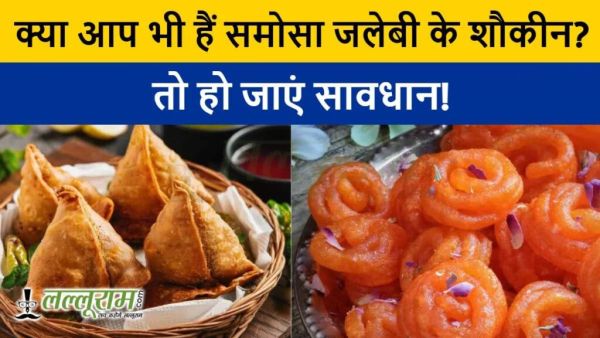
Health risks of samosa and jalebi: People in our India are very fond of eating and drinking. A pair of many things are such that without one, the other looks incomplete, such as tea-dumplings, rabri-gulab berries and a famous pair of samosas and jalebi.
These popular street food are definitely delicious, but they are not considered good at all in terms of health. Today we will tell you what are the disadvantages of eating samosa-jalebi together.
Health Risks of Samosa and Jalebi
Samosas and Jalebi are deep frying, due to which the amount of trans fats in them is quite high. These fats increase cholesterol in the body, which increases the risk of heart disease, obesity and diabetes.
A samosa contains an average of 250–300 calories, while only two jalebis have up to 300–350 calories. These are empty calories, which have no contribution to nutrition.
The refined sugar used in Jalebi increases the blood sugar level in the body, which can be dangerous for diabetes.
The outer part of the samosa is made of fine flour, which is fiber -less and high glycemic food.
Street vendors often heat the same oil repeatedly, which can produce acroin and cancerous elements in it, which are very harmful to health.
Do not eat more than once a week: Take samosa-jalebi as a treat, do not make it everyday habit.
Bake or air fry: Recipes like samosas can be made by baked or in the air fryer, which makes them less harmful.
Follow healthy options for sweet: Eat jaggery, honey or fruit which give natural sweetness and are also healthy.
Adopt green tea or herbal tea: Green tea or herbal tea can be a better option instead of tea filled with milk and sugar.